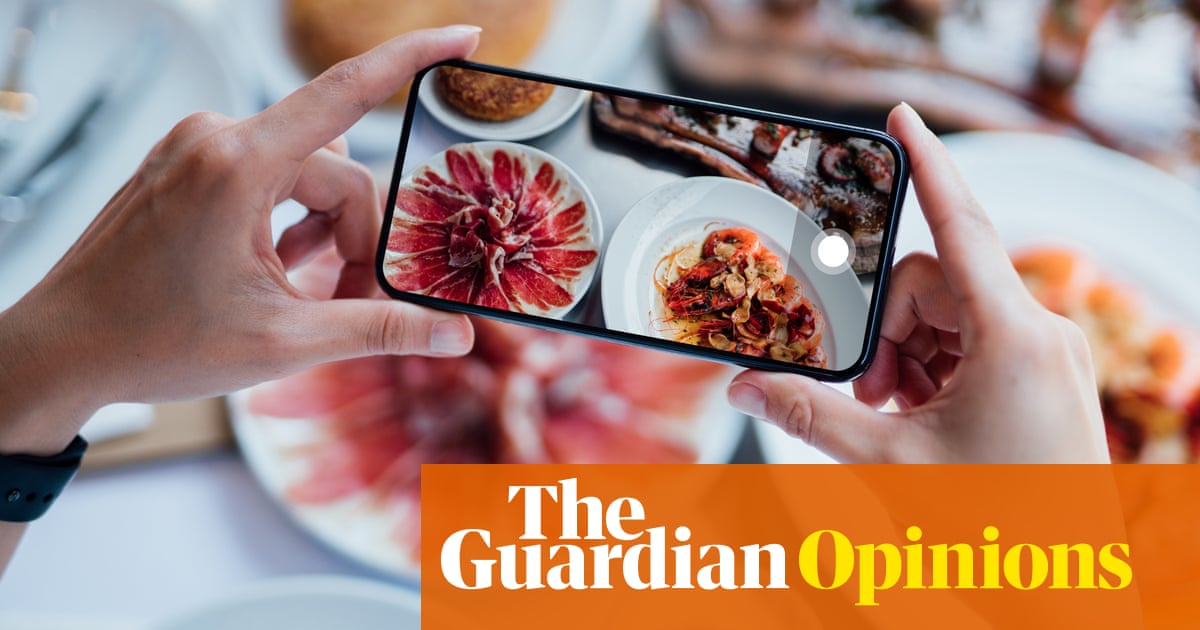Giorgio Locatelli despairs of diners who spend more time scrolling on their phones than “enjoying the moment”. The Michelin-starred cheftold a podcast it was saddiners weren’t interacting with each other more. But the real question is: is any restaurant experience more enjoyable than a video of grumpy cats?
I was taught to believe that the customer is always right. The premise of this idea is simple: a customer pays money to receive goods or services, and in return a business must move mountains to ensure they receive them. The customer is sacred, in other words.
Increasingly, however, I’ve noticed my high standing as a person with money to burn being challenged. And it’s usually by someone who wants to dictate how I use my phone. But let me be clear: this is futile. My message to any business owner who thinks otherwise is this: the world has already dictated the indispensability of the mobile phone; if you want my money, you have to accept my scrolling.
Locatelli would like diners to scroll less and talk more. Indeed, at his flagship restaurant Locanda Locatelli (now closed), he introduced a no-photo policy. He laments that people converse less in restaurants than they used to, and prefer instead to spend time photographing food or scrolling the socials. This is a brave thing to admit at a time when business isn’t exactly booming for the hospitality industry. Forbidding humans in 2025 from using phones in your restaurant is tantamount to forbidding humans from asking for alternatives to cow’s milk. It’s just what we do now.
And sure, in days gone by perhaps we did engage in more conversation – but that was probably because there was no alternative. It would have been impractical in 1995 to pull out a massive broadsheet and read a polemic on world politics in between main course and dessert. Now, within the confines of a handily sized black rectangle, I have all the day’s discourse at my fingertips. What person could expect to compete with that? And there is no way I’m losing my Duolingo streak because someone thinks their gratin tastes better with conversation. I’m on more than 1,000 days, mate. Nothing would taste good in a restaurant where I was expected to sacrifice that.
Restaurants need to give us customers what we want, not what theythinkwe want. The truth is, we are all addicted to our phones. This means we have to be taken as we are. For all the mourning over yesteryear, I doubt there are many custodians of spaces who dislike mobile phones so much that they would rather live in a world without devices. It is precisely this primal need to broadcast nice meals that we’ve eaten that is keeping the restaurant industry alive. If you don’t want us to take pictures of your food, why put stuff on the plate very precisely, with tweezers? Why does the puree look as if it was applied deftly with a paintbrush? I can’t think of anything more deserving of a place on our Instagram grid than a finely plated meal. And I can’t think of a better advertisement for a restaurant, either.
And this takes us to the crux of the matter. Better a restaurant filled with silence because everyone is on their phones than a restaurant filled with silence because it’s empty. Besides, more often or not, we’re still having a conversation – even if it’s with apassive/aggressive owl.
Athena Kugblenu is a writer and comedian
